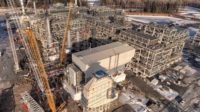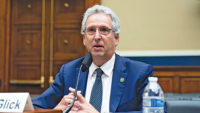

The wealthy Persian Gulf nation of Qatar is spending at least $4 billion of its oil and other resource riches to build leading-edge, environmentally friendly facilities and infrastructure to host the 2022 World Cup soccer tournament. The program involves building nine new stadiums, upgrading three others and constructing related facilities and upgrades to transportation infrastructure. Work will be coordinated with the assistance of Denver-based CH2M Hill Cos., a veteran manager of large sports construction programs that was selected last month as the program manager. U.S. and European designers are already onboard.
According to published reports, CH2M Hill won the contract, whose value was not disclosed, over five other bidders. The tournament host committee did not release the names of competitors, but they are said to include Arup, Mace and Laing O'Rourke, all of London, and Turner International, New York City. CH2M Hill, Mace and Laing O'Rourke have managed construction for the 2012 London Summer Olympics.
According to materials Qatar submitted in its bid for the tournament, which it won in December 2010, firms associated with preliminary design include not only Arup but also German-based Proprojekt and Albert Speer & Partner GmbH, U.K.-based Foster + Partners and California-based Dan Meis-Architect.
The documents say the facilities will feature technology innovations, particularly in cooling the event venues in a region with summer temperatures that can reach 50° C (122° F). These include solar thermal collectors and photovoltaic panels that will collect and store power in a "wide energy grid," as well as high-tech absorption cooling and air-handling systems. In addition, upper stadium tiers are modular and will be disassembled after the tournament, then sent to developing nations as part of the event's "legacy," say organizers.
A host committee spokesman did not disclose details on the construction schedule by ENR press time, but published reports say the first stadium is set for completion by 2015. In a statement, technical director Yasir Al Jamal said, "Over the next six months, we will be working together to develop our road map, which will provide us with delivery time lines." CH2M Hill says it has 2,000 staff in the Middle East, of which 200 are in Qatar.





Post a comment to this article
Report Abusive Comment